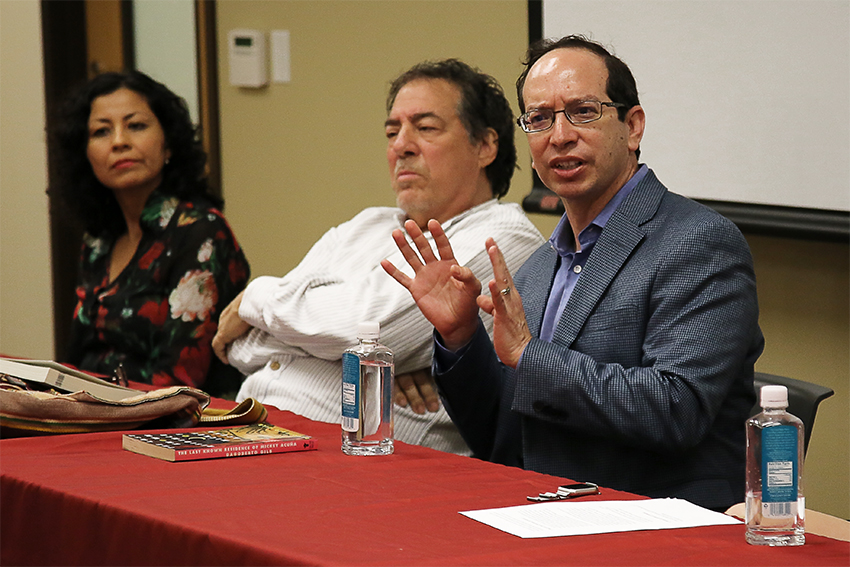Dagoberto Gilb did not know much about his white father, but one thing has stuck with him since his youth. “Never tell anyone you’re Mexican, say you’re Spanish,” his father used to tell him.
Gilb, who grew up with his Mexican mother, remembers his anger and the moment he became aware of the racism that came with his Mexican culture.
“The passive racism my father would sort of let happen, we accept it,” Gild said. “It’s not a black-and-white divide for us. It’s brown and white.”
The Center for Mexican American Studies hosted a “Salón Cultural: Race, Writing, and Culture” panel discussion Thursday to explain the role of Mexican American literature in a time when focus is being placed on the border with President Trump’s executive orders and the proposed reduction of government funds for the arts.
The panel consisted of writer Gilb, who is the editor of Huizache, a Latino magazine that focuses on voices from the Southwest. It also included English associate professor John Morán González and Emmy Pérez, a poet and associate professor at UT-Rio Grande Valley.
The panelists said Latino and Chicano literature must be considered prominent in American literature as it has always been present within the U.S.
“We’ve always had a literary presence here,” González said. “Here before the United States, before English really came to be the dominant language here.”
Pérez said she has been writing poems of resistance ever since she first started writing as a Latina living in the U.S.
“With Trump coming around and seeing some little kids chanting, ‘Build the wall,’ I am becoming more overt in my responses, but this resistance has been going on for a long time,” Pérez said. “A lot of us are going to continue to be more overt in their writing, as poets.”
However, even when Trump’s mantras place Mexicans in a negative light, the panelists said they wanted to share their experiences in their writing, reminding readers that they are true Americans by reaching out to broader audiences.
“I don’t like it when people call me a regional writer because it feels like a backhanded compliment,” Pérez said. “My students want to write more universal stories, not just stories about the (Rio Grande) Valley. But these stories are universal because they have real emotions and we all have real emotions.”





















